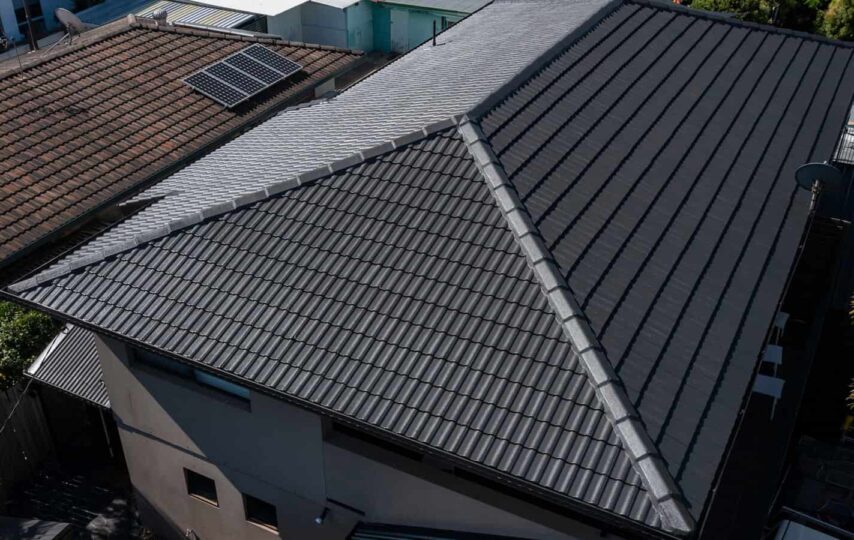Choosing a roofing contractor can feel overwhelming, especially when the safety and value of your property hang in the balance. With numerous options available, how can homeowners or business owners be sure they’re making the right choice? One of the most critical distinctions to make early on is whether the roofing company is properly licensed.
A licensed roofing company brings more to the table than just a crew and materials—they represent professionalism, accountability, and compliance with industry standards. On the other hand, hiring an unlicensed contractor, no matter how low the quote, can result in costly mistakes, unsafe installations, and zero legal recourse.
Understanding the role of licensing, along with the consequences of bypassing it, is essential whether you’re planning a roof repair, roof replacement, or a new roof installation.
What Licensing Really Means
Licensing isn’t simply a document on the wall. It’s a validation from local or state authorities that a roofing company meets required standards. This typically includes:
- Verification of experience and skills
- Proof of insurance and bonding
- Compliance with safety and labor regulations
- Demonstrated knowledge of local building codes
These requirements are in place to protect consumers and ensure that roofing contractors are qualified to perform work that meets structural, environmental, and safety codes.
Why Unlicensed Contractors Are Risky
The allure of lower costs often tempts property owners to hire contractors who operate without licenses. While the upfront price may seem attractive, the long-term risks are considerable.
No Protection from Faulty Work
Licensed contractors are held accountable for the quality of their work. If an issue arises due to poor installation or substandard materials, a licensed roofer is obligated to resolve the problem. An unlicensed contractor, however, can disappear without consequence, leaving you with a compromised roof and a larger repair bill.
Insurance Nightmares
Most insurance policies do not cover damages resulting from unlicensed work. If something goes wrong—say, a leak that damages the interior structure—your insurance may deny the claim. In commercial roofing scenarios, this risk becomes even more critical due to the size and value of assets housed under the roof.
Building Code Violations
Roofing projects must comply with local codes and permit requirements. A licensed roofing company understands these regulations and will pull the appropriate permits for the job. Unlicensed contractors often skip this step, which can result in hefty fines or required tear-offs if the job doesn’t meet inspection standards.
The Role of Licensing in Roof Repair and Replacement
Whether you’re facing an emergency roof repair after a storm or planning a full roof replacement due to age, the stakes are high. Mistakes in either case can compromise the structural integrity of the building and significantly shorten the roof’s lifespan.
Licensed professionals approach each project with detailed planning. They conduct full inspections, assess underlying damage, and create accurate cost estimates. Their knowledge of roofing systems—both residential and commercial roofing—ensures that the right materials and techniques are used for your specific structure and location.
An unlicensed contractor, lacking this depth of training and accountability, may overlook crucial steps or cut corners to save time. These shortcuts often lead to additional problems down the line, including water intrusion, mold growth, and reduced energy efficiency.
Questions to Ask Before Hiring
Even among licensed companies, there can be differences in experience and specialization. Before signing a contract, ask the following questions to ensure you’re working with a competent and trustworthy team:
- Are you licensed in this state or municipality?
- Can you provide proof of insurance and bonding?
- What warranties do you offer for labor and materials?
- Do you specialize in residential, commercial, or both types of roofing?
- Will permits be included in the scope of the project?
- What is the expected timeline for this roof installation or roof repair?
Reputable companies won’t hesitate to provide documentation or answer your concerns thoroughly.
Red Flags to Watch For
In addition to asking the right questions, it’s important to recognize common warning signs of a questionable contractor:
- No verifiable business address
- Demands for full payment upfront
- Lack of written contract or vague terms
- Evasive answers about licensing or insurance
- Pressure to make immediate decisions
Being alert to these red flags can save property owners from making expensive and stressful mistakes.
Legal and Financial Accountability
A licensed roofing company doesn’t just offer better workmanship—they also protect you legally and financially. If the contractor causes damage to your property, injures a worker, or fails to complete the work, their insurance and bond cover the associated costs.
Without those protections, you could be left footing the bill, even if the damage wasn’t your fault. This is especially dangerous in commercial roofing situations, where the scale of liability is far greater than in typical residential jobs.
Companies like Pinnacle Roofing Group operate within the full bounds of regulatory and licensing requirements. When choosing a contractor, working with a company that upholds these professional standards provides reassurance that your property is in qualified hands.
The Hidden Costs of Cutting Corners
Saving money upfront by hiring an unlicensed roofer often results in higher costs down the line. These can include:
- Paying out-of-pocket for repairs not covered by insurance
- Fines from building code violations
- Decreased home value due to substandard installation
- The need to pay another contractor to redo faulty work
A properly installed roof, handled by licensed professionals, ensures long-term durability and performance. It also contributes to the overall stability of the building and reduces future maintenance needs.
Roofing Is an Investment—Not Just an Expense
Too often, homeowners view roofing as a necessary but unappealing cost. In reality, quality roofing work is an investment in your property’s value, energy efficiency, and safety. Choosing a licensed contractor is the first step in protecting that investment.
Your roof safeguards everything underneath it—your family, possessions, equipment, and infrastructure. Cutting corners during installation or repair compromises that protection. A licensed roofer guarantees that all aspects of the job, from permits to clean-up, are done to code and industry standard.
Final Word
Whether you’re planning a new roof installation or facing unexpected roof repair, your choice of contractor makes all the difference. Take the time to verify credentials, understand licensing requirements, and work only with professionals who prioritize compliance, transparency, and quality.
In a market where not every option is equal, a reputable and licensed roofing company like Pinnacle Roofing Group offers the confidence and reliability that property owners need. Don’t leave your roofing project to chance—choose wisely and protect your investment from the start.








